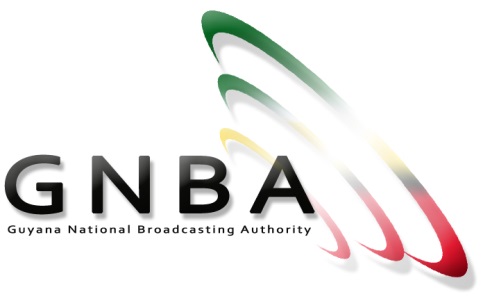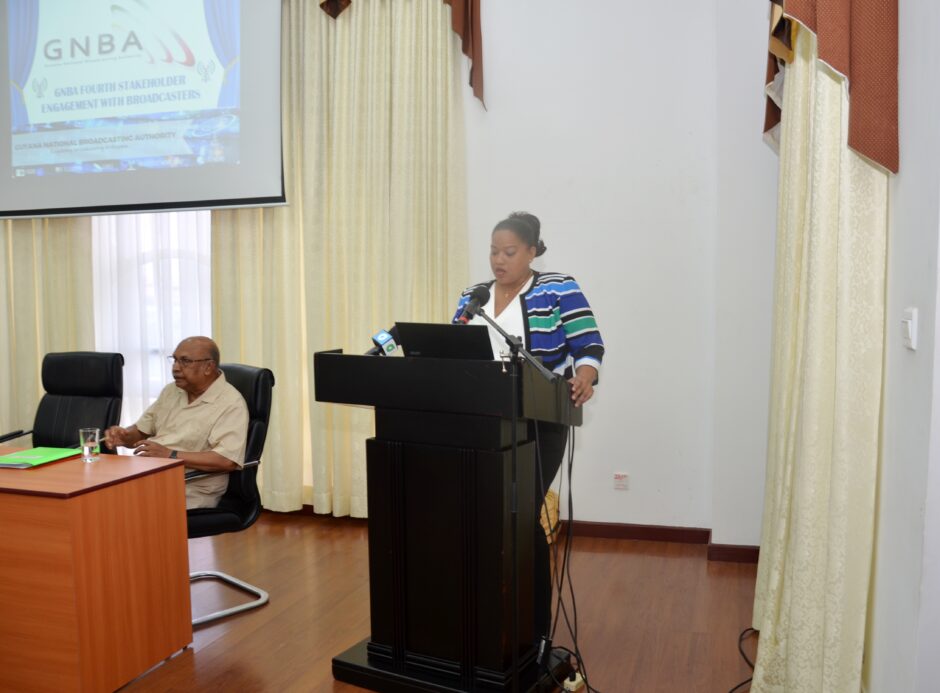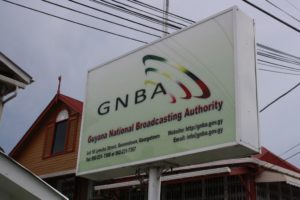TV, radio programme hosts should be properly trained – GNBA
Citing poor administration, lack of familiarity with guidelines and laws governing broadcasting, among the reasons why licensed radio and television broadcasters commit a list of infractions, the Guyana National Broadcasting Authority (GNBA’)s Special Investigative Committee (SIC) has pointed to the need for training, particularly for persons who host call-in programmes.

A section of the representatives of radio and television stations at the GNBA Stakeholder Engagement
GNBA Board and SIC member, Aretha Campbell, told the media operatives at a stakeholders meeting on Tuesday, that the team found the infringements were due to “In some cases, poor administration of the television or radio stations such as the failure to review a movie or song before playing it on air.”
She said that GNBA‘s investigative committee also observed, “In other cases, there is a failure to play the content outside the prime-time period. It is also observed that many programme hosts need to be trained especially those who host call-in programmes.”
According to Campbell, SIC’s work had uncovered a pattern of infractions committed by broadcasters in the various categories.
With regards to television broadcast, the most common and prevalent infractions include controversial, character attacking programmes; imbalanced news reportage; movies with profanity or other inappropriate content; failure to include the required advisory before and after certain advertisement.
As it relates to radio broadcast, music with profanity; music with lewd lyrics played during prime time; controversial, character attacking programmes; failure to include the required advisory before and after certain advertisements were most common.
Campbell noted, nonetheless, that generally, when licensed broadcasters meet with SIC, most of them are pointed to their obligations under the legislation as well the broadcasting guidelines. “Oftentimes, licensed broadcasters would acknowledge and admit to the alleged infractions and would usually undertake to do better and to put mechanisms in place to avoid a repeat of said infraction. Licensed broadcasters also take the opportunity to share issues they faced within the sector and would sometimes share ideas for the betterment of the sector.”
The GNBA official said, however, there are situations where a licensed broadcaster would have disagreed that an infraction occurred which would often result in the matter being placed before the Board. “There have been a few occasions where an alleged infraction submitted to SIC for investigation was found not to be an infraction. These are recommended to the Board for withdrawal,” she said. Given the mandate it has, Campbell said that SIC has made a list of recommendations to assist licensed broadcasters in becoming au fait with the legislation and the broadcasting guidelines. Among them, she said that the team has recommended that licensed broadcasters create their own rules/procedures for self monitoring which align with the broadcasting guidelines and continue to train staff so as to be compliant with their contractual obligations.
“SIC wishes to remind Licensed Broadcasters that you were granted a licence and it is your responsibility to ensure that the conditions of said licence are not breached. It is essential that you put systems in place to ensure compliance,” Campbell added. Earlier this year, the GNBA had announced that over 150 broadcast infringements were committed within the space of five months. Of the 19 registered television stations, and 20 registered radio stations, the GNBA recorded 39 infringements in January, 40 in February, 49 in March, 22 in April, and at least 16 were recorded in May of this year.
Source: Kaieteur News



